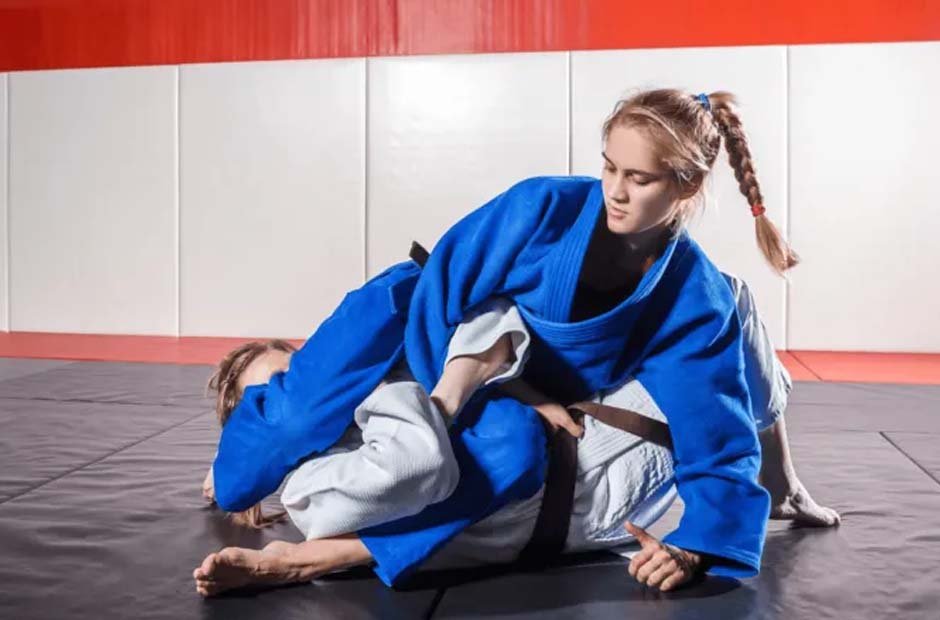Jiu-Jitsu is an influential martial art. Its emphasis on technique and leverage enables a smaller and weaker person to defeat a more prominent, stronger opponent using the right moves.
The physical aspect of Jiu-Jitsu may be its most visible element, but the mental component is equally critical to mastering this martial art. Often overlooked, the mental game can play a decisive role in determining the outcome of a match. It demands focus, resilience, and strategic thinking, helping practitioners not only to anticipate and react to their opponent’s moves but also to manage their emotions and stay calm under pressure. Over time, training in Jiu-Jitsu can build mental strength and discipline.
Table of Contents
Understanding the Mind-Body Connection in Jiu-Jitsu
The importance of the mind-body connection cannot be overstated in Brazilian Jiu-Jitsu or any combat sport. Your brain is a vital player on the battlefield: strategizing moves, assessing threats, making split-second decisions, triggering reflex actions, and managing adrenaline release. This connection between physical prowess and mental acuity determines not only your immediate performance but also your progression and growth in the martial art.
The influence of mental strategy on physical performance is evident when observing highly skilled Jiu-Jitsu practitioners. Effective combat is not merely about physical strength or speed; it’s also about leveraging your understanding and prediction of your opponent’s moves, feints, and tactics. Jiu-Jitsu has substantial psychological components, significantly involving concentration, discipline, courage, resilience, and out-of-the-box strategic thinking. This blending of mind and body is critical, conditioning practitioners to think on their feet while maintaining poise and precision.
Building Mental Toughness and Confidence
Training in Jiu-Jitsu requires more than just physical strength and technique; there’s an essential mental component that separates casual practitioners from truly dedicated athletes. The resilience and mental toughness required in Jiu-Jitsu can often be as demanding, if not more so, than physical conditioning. Consistently training, facing off against opponents, and overcoming challenging situations on the mat forge a mental fortitude that becomes invaluable in all aspects of life. Suddenly, hard problems seem solvable, daunting challenges become surmountable, and daunting tasks feel achievable. Such mental toughness can lead to a high level of perseverance, translating into grit and determination in the face of adversity.
The sport also plays a significant role in building confidence and self-belief in one’s abilities. One can train these skills by visiting a jiu jitsu San Diego gym. As a practitioner learns techniques and successfully applies them in sparring, their confidence grows and builds into a strong foundation. The more one trains and challenges oneself, the more confident one becomes—not just in regard to Jiu-Jitsu, but also in managing life’s day-to-day encounters. Understanding that you can face formidable opponents and difficult situations with strength and courage, and emerge victorious, breeds a self-belief that is valuable both on and off the mat.
Staying Calm Under Pressure
Engaging in Jiu-Jitsu often means embracing a state of calculated chaos. In the sport, it is common for practitioners to find themselves in intense and challenging situations. It’s precisely in these moments of high intensity that maintaining one’s calm becomes key to progression. Managing stress and anxiety doesn’t only preserve physical stamina, it also allows clearer thinking, better decision-making, and strategic maneuvering. Achieving this calm under pressure has a profound impact, reshaping nerve-wracking situations into opportunities for victory.
To maintain calmness and focus during matches, Jiu-Jitsu players utilize techniques that extend far beyond physical training. Breathing techniques, mindfulness habits, mental rehearsals – all of these become valuable tools for conditioning the mind to perform under pressure. Stories from experienced practitioners speak volumes about the importance of this psychological aspect of the sport. From the tales of world champions to the anecdotes of day-to-day practitioners, the ability to handle pressure consistently emerges as a defining facet of success in Jiu-Jitsu.
Mindfulness and Meditation
The martial art of Jiu-Jitsu goes beyond just physical prowess and technique. It demands a high level of concentration and mindfulness, requiring practitioners to stay fully present during every match. Each move, block, or attempt to escape necessitates keen awareness of one’s own actions as well as the opponent’s actions. Focus and mindfulness are key. They allow you to respond quickly to an opponent’s move, strategize your next move while defending an attack, and remain attuned to potential opportunities to gain the upper hand.
The practice of mindfulness and meditation significantly aids focus and performance in Jiu-Jitsu. Incorporating these practices into your training regimen can help to boost concentration, reduce performance anxiety, and assist in stress management. Such mental exercises promote a sense of calmness and lucidity even in the midst of intense combat. Jiu-Jitsu practitioners often engage in specific mindfulness exercises aimed at enhancing bodily awareness, focused attention, and mental resilience. Whether it’s simple breath control, Yoga, or guided meditation, these practices are said to offer a significant competitive edge alongside physical training.
The mental aspect of Jiu-Jitsu is as important as the physical. Mastering the ability to stay calm under pressure, building mental toughness and confidence, and practicing mindfulness all contribute significantly to a practitioner’s success.










